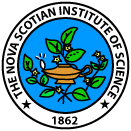
MEETINGS
MEMBERSHIP
PROCEEDINGS
ABSTRACTS
STUDENTS
LIBRARY
EXECUTIVE
BROCHURE
HALL OF FAME
HISTORY
LINKS
Monthly programmes and abstracts of meetings of the NSIS
| 1998–1999 1999–2000 2000–2001 2001–2002 |
2002–2003 2003–2004 2004–2005 2005–2006 |
2006–2007 2007–2008 |
Speaker List (1998–present)
2 October 2006
Avian Influenza: the coming pandemic
Todd Hatchette, Department of Pathology, Dalhousie University, andDirector of the Virology Laboratory, Queen Elizabeth II Health Sciences Centre
Influenza A infection remains a significant cause of respiratory disease and is responsible for substantial morbidity, mortality and excess use of health care on a yearly basis. In fact 6700 deaths and 70,000 to 75,000 hospitalizations each year are attributed to influenza. The recent outbreaks of H5N1 avian influenza in South East Asia, which to date have infected 246 people with a 59% mortality rate, underscore concerns regarding the potential threat of emerging influenza virus pandemics. Wild aquatic birds are the reservoir for all influenza viruses and history has illustrated the role this gene pool has played in human pandemics. In this lecture I will discuss avian influenza and its role in human pandemics and review the ongoing outbreak of H5N1 avian influenza that has spread across the Eurasian continent.
6 November 2006
Large marine predators in the World's Oceans:
how to save our most endangered
wildlife
Boris Worm, Department of Biology, Dalhousie UniversityIn this talk, Boris Worm will discuss the history and current state of large marine predators, such as sharks, tuna, marlin, swordfish and sea turtles, as well as large groundfish. In Nova Scotian waters and around the world these species were an important part of coastal and oceanic ecosystems, but have now almost disappeared in most regions. Apart from looming species extinctions, the elimination of some large predators and herbivores from inshore areas has triggered cascading ecosystem effects. How critical is the global situation really, how is it affecting us and how can we halt the decline of some of the ocean's most fascinating creatures? Professor Worm will address these important questions and will also note that consumers can help to maintain species diversity and the functioning of ecosystems.
4 December 2006
The Halifax Harbour Cleanup Project
Daniel O'Halloran, O'Halloran Campbell Consultants Ltd.This talk had to be postponed because of the snow storm. (see January/07)
8 January 2007
The Halifax Harbour Cleanup Project
Daniel O'Halloran, O'Halloran Campbell Consultants Ltd.This illustrated talk will outline the design, construction, progress and expected completion dates for the Halifax Harbour Solutions project currently being built in the HRM. The project includes the construction of large trunk collection sewers and three plants in Halifax, Dartmouth and Herring Cove for advanced primary sewage treatment. In addition to improving the quality of the harbour water, the $250-million project will also include a Biosolids Processing Facility to be located in the Aerotech Business Park. This plant will produce a fertilizer approved by the federal government for use on agricultural lands. O'Halloran Campbell Consultants have been providing project management advice and general consulting input for the Halifax Harbour Solutions project for almost 30 years.
5 February 2007
Pioneers in Canadian Marine Science
Eric Mills, Department of Oceanography, Dalhousie UniversityCanada has long been famous for its expertise in the marine sciences. But these sciences had a very modest beginning at the beginning of the 20th century, constrained by lack of personnel and scarcity of money. Although we readily recognize the contributions made to this early science by a giant like A.G. Huntsman of the University of Toronto and the St Andrews Biological Station, there is a much more complex and personal story to be told of how the marine sciences took the shape they did in Canada under the influence of the famous fisheries biologist Johan Hjort upon Huntsman. In this extensively illustrated talk, Hjort's influence, Huntsman's early work, and the entirely unexpected influence of personal factors upon the expansion of the marine sciences in Canada will be outlined.
5 March 2007
Treatment of cancers by vaccination
Marc Mansour, ImmunoVaccine Technologies Inc.ImmunoVaccine Technologies Inc. (IVT) is a Halifax-based biotechnology company providing a unique liposome-based vaccine platform (VacciMax®) that delivers effective and long-lasting immune responses in a single administration. VacciMax® can be used to enhance novel vaccine candidates or improve existing human and veterinary vaccines. IVT is currently expanding its vaccine program for the therapeutic treatment of several human cancers as the company prepares to test the efficacy of the technology in human clinical trials. Dr Mansour will discuss recent developments of this work.
2 April 2007
Coal Age Galapagos: Joggins and the quest for World Heritage Status
John Calder, N.S. Department of Natural ResourcesThe dramatic sea cliffs at Joggins are a superb relic from the Carboniferous Coal Age, some 310 million years ago. In the 19th century, the cliffs were visited by the noted geologist, Sir Charles Lyell, and their fossil record was discussed by Darwin. One of the great paleontological discoveries, that of the oldest known reptiles in the once hollow fossil trees of Joggins, has grown in significance since their discovery some 150 years ago. Hylonomus lyelli, Nova Scotia's provincial fossil, is key to our understanding of the evolution of the amniotes as that group's earliest representative. The nomination of a 15-km span of the Joggins cliffs has now been made to the UNESCO World Heritage Centre. In this talk, we will explore the significance of this site in the context of World Heritage, and will examine the challenge of caring for a unique chapter in the earth's history.
7 May 2007 (Annual General Meeting)
Extracting Energy from the Wind
Charles Demond, Pubnico Wind Farms
Please report broken links to the webmaster.